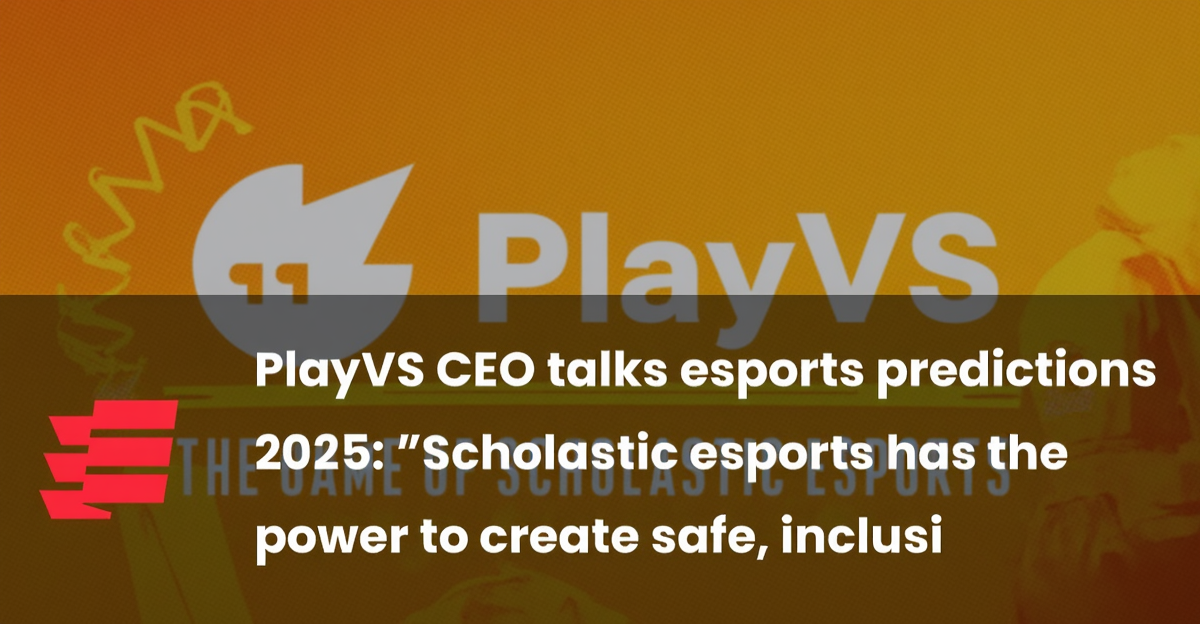PlayVS CEO on 2025 Esports Predictions: Creating Safe, Inclusive Spaces
As we enter 2025, the esports landscape is set to undergo significant changes, particularly in the realm of scholastic esports. According to the CEO of PlayVS, scholastic esports has the potential to create safe, inclusive spaces by prioritizing diversity, equity, and accessibility.
Diversity and Inclusion
The esports industry has been working to address its historical lack of diversity and inclusivity. Efforts are being made to ensure that esports environments are welcoming to all participants, regardless of their background. This includes implementing codes of conduct, anti-discrimination policies, and active outreach to marginalized communities. For instance, organizations like Cloud 9 are spearheading initiatives to empower traditionally marginalized groups in competitive gaming.
Safe Spaces
Creating safe spaces is crucial for the growth and sustainability of esports. This involves enforcing zero-tolerance policies for toxic behavior and ensuring that all matches are moderated by verified faculty members. PlayVS, for example, requires adult supervision during all matches and stores student data securely without monetizing it.
Equity and Accessibility
Equity and accessibility are key components in making esports inclusive. This means providing equal opportunities for all students to participate, regardless of their financial or social background. PlayVS offers free and fun gameplay for middle schoolers, while also providing millions of dollars in scholarship opportunities for high school students. This helps level the playing field and encourages more students to engage in competitive gaming.
Future Predictions
In 2025, several trends are expected to shape the esports industry:
- Consolidation and Growth: The industry will see more mergers and acquisitions as organizations focus on global reach and sustainability. Stronger business models will emerge, distinguishing successful organizations from others.
- Mobile Esports: Mobile esports will continue to dominate, especially in mobile-first markets like South Asia and the MENA region. This will provide new opportunities for players and audiences.
- AI and Data Analytics: The use of AI and data analytics will revolutionize coaching, marketing, and fan engagement. This will make esports more dynamic and data-driven.
Scholastic Esports Impact
Scholastic esports programs are not only about competition; they also offer numerous benefits for students. Participating in esports can build character, discipline, self-esteem, communication skills, and sportsmanship. Additionally, it has been observed that students involved in esports often see improvements in their grades and attendance.
Expanding Opportunities
The growth of scholastic esports is also driven by the increasing recognition of its educational value. High schools and middle schools are integrating esports into their extracurricular activities, providing students with a reason to be more engaged in school. This expansion is supported by hundreds of colleges and universities that offer esports scholarships, further incentivizing students to participate.
Conclusion
As the esports industry continues to evolve, prioritizing diversity, equity, and accessibility will be crucial. By creating safe and inclusive spaces, scholastic esports can foster a positive and supportive environment for all participants. With the integration of AI, data analytics, and mobile esports, 2025 promises to be a pivotal year for the industry. As more schools and organizations join this movement, the future of esports looks brighter and more inclusive than ever.
Empowering Marginalized Groups
Efforts to empower marginalized groups in esports are gaining momentum. Initiatives like Women in Esports and Pride fundraisers are helping to create a more inclusive environment. Organizations are actively reaching out to underrepresented communities, encouraging them to join esports clubs and teams. This outreach is crucial in breaking down barriers and ensuring that everyone has an equal opportunity to participate.
Addressing Unconscious Bias
Addressing unconscious bias is another critical aspect of creating inclusive spaces. Organizations are implementing training programs to help staff and players recognize and overcome their biases. This includes mandatory anti-sexism training and workshops on diversity and inclusion. By acknowledging and addressing these biases, the esports community can become more welcoming and equitable.
Global Expansion
The global expansion of esports is also a significant trend for 2025. With the rise of mobile esports, regions like South Asia and the MENA are becoming key players in the global esports ecosystem. This expansion brings new opportunities for players, teams, and organizers, further solidifying esports as a major player in the global entertainment landscape.
Technological Advancements
Technological advancements, particularly in AI and data analytics, will continue to shape the esports industry. These tools will enhance coaching strategies, improve marketing efforts, and enhance fan engagement. As the industry becomes more data-driven, it will also become more competitive and dynamic, offering better experiences for both players and spectators.
By focusing on these areas, the esports industry can ensure a bright, inclusive, and sustainable future for all participants.






